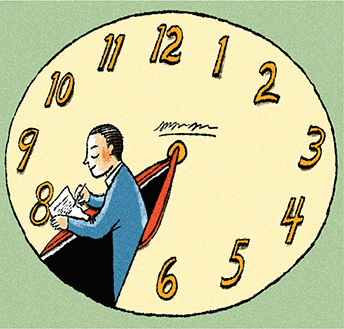

Fountain Valley Urgent Care Permanently Closed. We’re Here to Care for You at Our Other Locations.

Hello, and welcome to the 11th installation of 5-Shot Friday. With a bit of a moonshot, Think Bigger philosophical twist.
Sean Blanda, of the career advising organizations 99U and Behance, reminds us of a basic lesson about life that is as timely now as it was in kindergarten: the “other side” is not dumb. We don’t have to climb into the minds of terrorists and sympathize with their boo-boos, but it’s a mistake to treat folks whose conclusions differ from our own as if they were, like, you know, terrorists. And there’s a fair amount of that stupidity going around right now.
“When someone communicates that they are not “on our side” our first reaction is to run away or dismiss them as stupid. To be sure, there are hateful, racist, people not worthy of the small amount of electricity it takes just one of your synapses to fire. I’m instead referencing those who actually believe in an opposing viewpoint of a complicated issue, and do so for genuine, considered reasons. Or at least, for reasons just as good as yours.”
“This is not a ‘political correctness’ issue. It’s a fundamental rejection of the possibility to consider that the people who don’t feel the same way you do might be right. It’s a preference to see the Other Side as a cardboard cut out, and not the complicated individual human beings that they actually are.”
Remember one of 5SF’s initial posts – this stuff isn’t brain surgery, but sometimes it’s about brain surgery? This is one of those times, where it’s valuable to think about how we think (or in this case, how we may not be thinking, but just parroting the slogans of others and congratulating ourselves for not using our minds).
There’s no way around it: if you don’t stop and think, if you don’t consider that your own knowledge and opinions may be limited and incorrect, if you don’t acknowledge that other can have different viewpoints from you and still be worthy of respect, you will have major, major problems with maintaining your own health and wellness.
This isn’t Tim’s 4-Hour Workweek, a comprehensive, mindblowing restructuring of how to approach work, life, and everything of value. The 1-Hour Workday is about a more focused and modest goal: creating small blocks of dedicated work, that assemble over time into puff-your-chest-out achievements.
“When I was an assistant professor, I felt constantly overwhelmed. I had classes to teach, relationships with new colleagues to navigate, a lab group to assemble, and an infant at home…To get ahead, I took on any opportunities that were offered, including membership on various editorial boards and professional committees. Despite working like a madman, my productivity as measured by paper output was meager.
“…as the years passed, I noticed a few senior colleagues who published with impressive regularity and always had a paper in the works. When I asked them what their secret was, I found that they prioritized doing small amounts of focused writing every day. I"ve since developed my own version of this approach. I call it the 1-hour workday, referring to the short, sacrosanct period when I do what I see as the “real” work of academia: writing papers.”
Or as one strength coach put it, “Baby steps are the smallest, but they move the quickest.”
3) Growing Eyeballs, Sort Of, Coming Soon

Australian researchers have successfully grown and implanted cells from the cornea – the clear dome at the front of the eye – to correct blindness from corneal damage in laboratory animals.
Corneal damage can cause cloudiness of that clear window, and the usual treatment of corneal transplants fail about a third of the time, due to rejection. And there aren’t a whole lot of free corneas floating around, cadaver or otherwise.
The new method would use the patient’s own cells to grow a replacement layer on a synthetic film, which would be inserted into the cornea to replace the damaged cells.
Venture capital is now being sought to set up human trials.
4) Future Tech Means Addition, Not Subtraction
Being kicked out of a job has long been a fear of changing technology – “Which jobs will be replaced by machines?”
Tim O’Reilly, CEO and founder of O’Reilly Media, points out that we shouldn’t be worried about this: citing a recent article in the business technology periodical the McKinsey Quarterly, it’s more about tasks being automated, with jobs being changed more than destroyed.
“In fact, as our research has begun to show, the story is more nuanced. While automation will eliminate very few occupations entirely in the next decade, it will affect portions of almost all jobs to a greater or lesser degree, depending on the type of work they entail.”
O’Reilly pushes the envelope further:
“Those weavers who smashed machine looms in Ned Ludd’s rebellion of 1811 didn’t realize that descendants of those machines would make unbelievable things possible. We’d tunnel through mountains and under the sea, we’d fly through the air, crossing continents in hours, we’d build cities in the desert with buildings a half mile high, we’d more than double average human lifespan, we’d put spacecraft in orbit around Jupiter, we’d smash the atom itself! What is impossible today, but will become possible with the technology we are now afraid of?
As Google chief economist Hal Varian has said, “My grandfather wouldn’t recognize what I do as work.” What are the new jobs of the 21st century, jobs that aren’t going to be replaced or changed, but invented out of whole cloth?”
Shout out to @bulletproofexec for the tweet of one of The Great Truths.
Also, for you fellow science fiction geeks out there, the plot of Dune summarized in emoji, thanks to the lead actor in a pretty bad big screen adaptation of the same novel, @Kyle_MacLachlan.
Share Your Valuable Thought